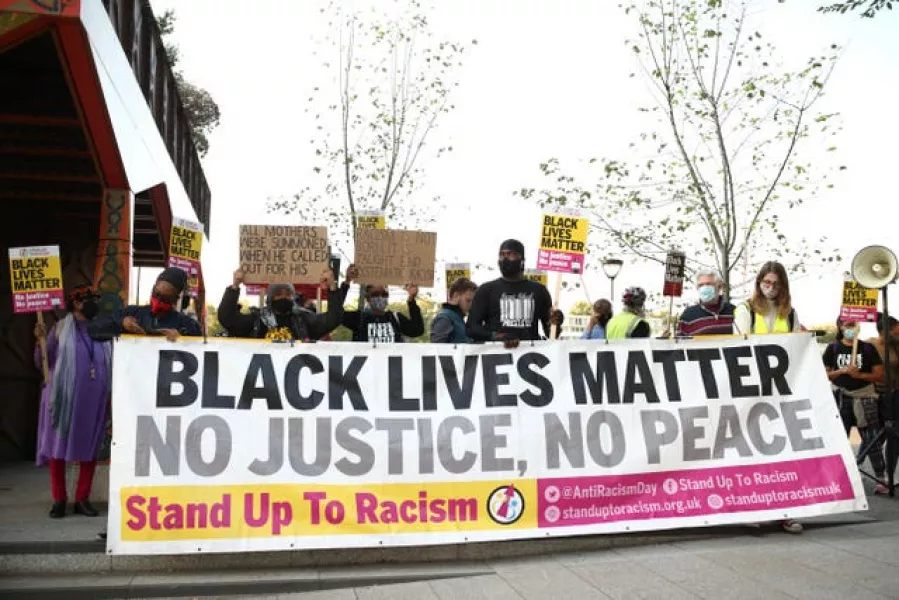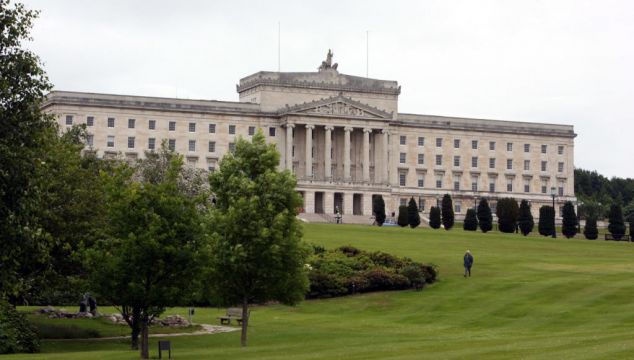Northern Ireland is in the “dark ages” when it comes to equality laws, MPs have been warned.
Geraldine McGahey, chief commissioner at the Equality Commission for Northern Ireland, said the region was falling so far behind legislative changes made elsewhere in the UK it was in danger of no longer being viewed as a developed country.
Ms McGahey claimed political disagreements and a fixation on orange and green issues had resulted in a two-decade long failure to enhance legal protections for minority groups.
The chief commissioner was giving evidence to the Northern Ireland Affairs Committee on the experiences of minority ethnic and migrant people in the region.
She said her claims of political inaction applied to all aspects of equality legislation.
“Bearing in mind that we are all part of the United Kingdom we are in the dark ages currently with the legislative framework that we have,” she said.
“We are in the dark ages in comparison to what is being operated in GB across the entire equality legislative framework, not just in terms of race.
“It is, I think, to our shame that we haven’t updated our legislation. To have been calling for strengthening of legislation and legal reforms since 2008 to 2021 without any movement is absolutely shameful.
“We are so caught up in orange and green issues and trying to maintain peace in line with the Good Friday Agreement that the focus does not spread out over other issues in our society.
“We get to a certain point in terms of consultation or promoting legislative reform and then our parties can’t agree and it gets put on the back burner.”
'Not a developed country'
The chief commissioner added: “As a society, we need to sit back and take a look at where we are and what really needs to be done to bring us up into the modern age.
“Northern Ireland had a long history of being at the forefront in terms of its equality framework and its legislative basis.
“We have lost that position and we are at serious risk of falling way behind, to being not a developed country.”
The chief commissioner told MPs she had witnessed some “green shoots” of attitudinal changes at the Stormont Assembly.

She said the impact of the Black Lives Movement last year had generated some momentum in regards to taking action on equality issues.
During the evidence session, MPs were told that Northern Ireland was also lagging behind the rest of the UK in the terms of the data it collected on its migrant population.
Ms McGahey said a failure to gather detailed data on the region’s minority communities was having significant consequences.
She cited the example of Covid statistics.
“We can’t even start to look at the impacts of Covid on ethnic minority communities and I think that’s a real disservice that we’re doing to a very strong and vibrant part of our society, and we are actually breaching our moral obligations,” said the chief commissioner.
Michele Janes, head of Barnardo’s NI, highlighted the same concern around data as she gave evidence to the committee on the region’s migrant young people.
“What sort of message do we give our children, our young people and their families here in Northern Ireland that we don’t know who they are, where they are and what they need,” she said.
“How can we plan to meet those needs if we don’t know who they are, where they are and what they need? What value do they take from us not having that sort of data available?”







